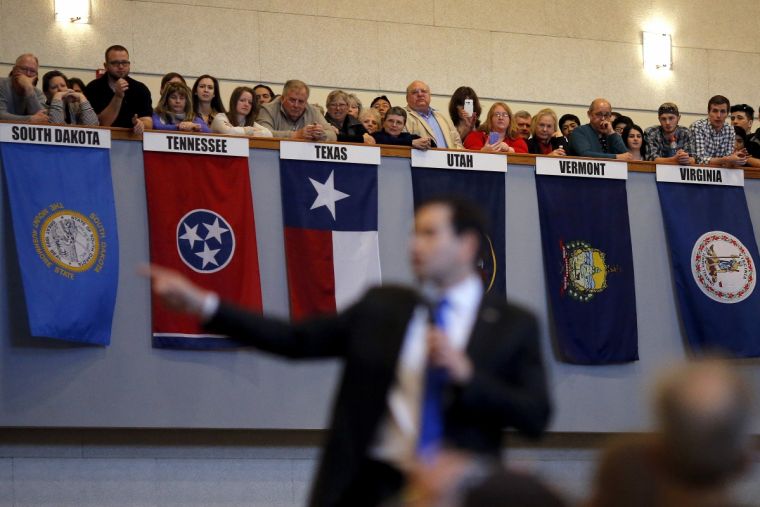5 questions every Christian voter should ask this election

The US election is coming up, and it's vital we all pay attention. American Presidents play a huge role in the global arena, as well as at home, and in that sense Christians around the world have skin in this game. We should be praying that in this most unpredictable of electoral races, our brothers and sisters across the pond will have the wisdom to think hard and decide well. As we reflect on their choices, we are reminded of our own responsibility when it comes to elections.
1. Are we going to vote?
I believe Christians have a moral responsibility to vote. Voting recognises the equality of all people and their right to speak and be heard (Deuteronomy 10:17-19). It is one way that we can obey God's command to seek the good of those around us and our nation as a whole (Jeremiah 29:5-6). It forces us to face up to the issues facing our world and to have a say on the things that really matter. I believe voting means taking the time to inform yourself of the issues at stake. An informed vote means you don't simply vote with your tribe or back the party your ancestors or peers have always voted for.
2. Will we vote for a better world, not just a better life?
The economy is of course an important factor of governance – but as Christians we should be vigilant to make sure that when we cast our vote we are as concerned about the welfare of others as we are for our own. Jesus couldn't have been clearer with his priorities; we are to love our neighbours as ourselves. This perspective should influence all aspects of our lives, including our voting. Throughout Scripture God is clear that he has special concern for those on the margins of society. Jesus himself explained that he had come to preach "good news to the poor." As we vote we can ask ourselves: how will my decision affect the poor, the marginalised, the sick, the outsider, the widow and the orphan?
3. How can we avoid being manipulated?
My dog was anyone's for a ham sandwich. Any walk in the park would have illustrated perfectly clearly that he would abandon all loyalty to myself should a stranger offer him a tasty snack. Sadly, electioneering can bring the worst out of leaders where tasty promises and deals appear to be on offer, and it can bring the worst out of us as our ears prick up to certain trigger key words and catchphrases. If we're not careful, our loyalty is bought not with rational response but rather with instinctual pavlovian reaction. We can become so attuned to hot button issues in political debate that we are easily manipulated. We need enough discernment to see what is going on beneath the rhetoric. As Christians we belong to God and the loyalty we give to anyone else derives from our commitment to God first. We owe it to God to be discerning voters so we don't offer to Caesar what belongs to God alone.
4. How can I be a peacemaker in politics?
Right at the core of democracy is the recognition of the equal worth and value of each person: each of us, whether president or roadsweeper, gets to cast only one vote. Yet ironically, political and, perhaps especially, presidential electoral debate can undermine this equality, as each candidate tries to better, belittle and beat the other. There is a temptation therefore to vilify and even dehumanise our political opponents, as though they were the enemy. But for Christians peacemaking is the family business. As Jesus put it, "Blessed are the peacemakers for they will be called the sons of God". He commanded us to "love your enemies and pray for those who persecute you," (Matthew 5:44). As the tensions rise it is surely important that we speak well of all the candidates and their followers and not let political affiliation be a barrier for Christian unity. There are usually Christian people of good conscience operating on all sides of the political spectrum.
5. Look for character and competency in a leader
We are familiar with the warnings Jesus gave of wolves in sheep's clothing: the inner character of a leader is more significant than their outward charisma. Most of us have been trained to be on our guard for smooth talkers and to look behind the trigger words and media spin for integrity and authenticity. But it is also important to be looking at the skills that potential leaders can bring – do they actually have the requisite skills and experience to do the job? When deciding which candidate to vote for we should be on the look out for true character and competency, and learn to distinguish that from the projected and airbrushed images of the candidates. An election should be more than a popularity contest or a beauty pageant. At a time of huge global change we need leaders we can trust at every level of politics.
Dr Krish Kandiah is a Contributing Editor to Christian Today and founder and director of Home for Good.











